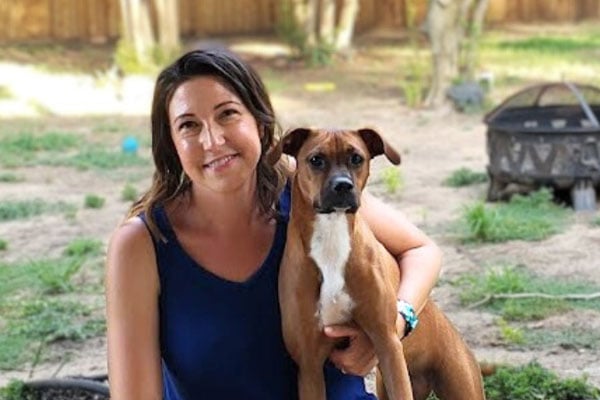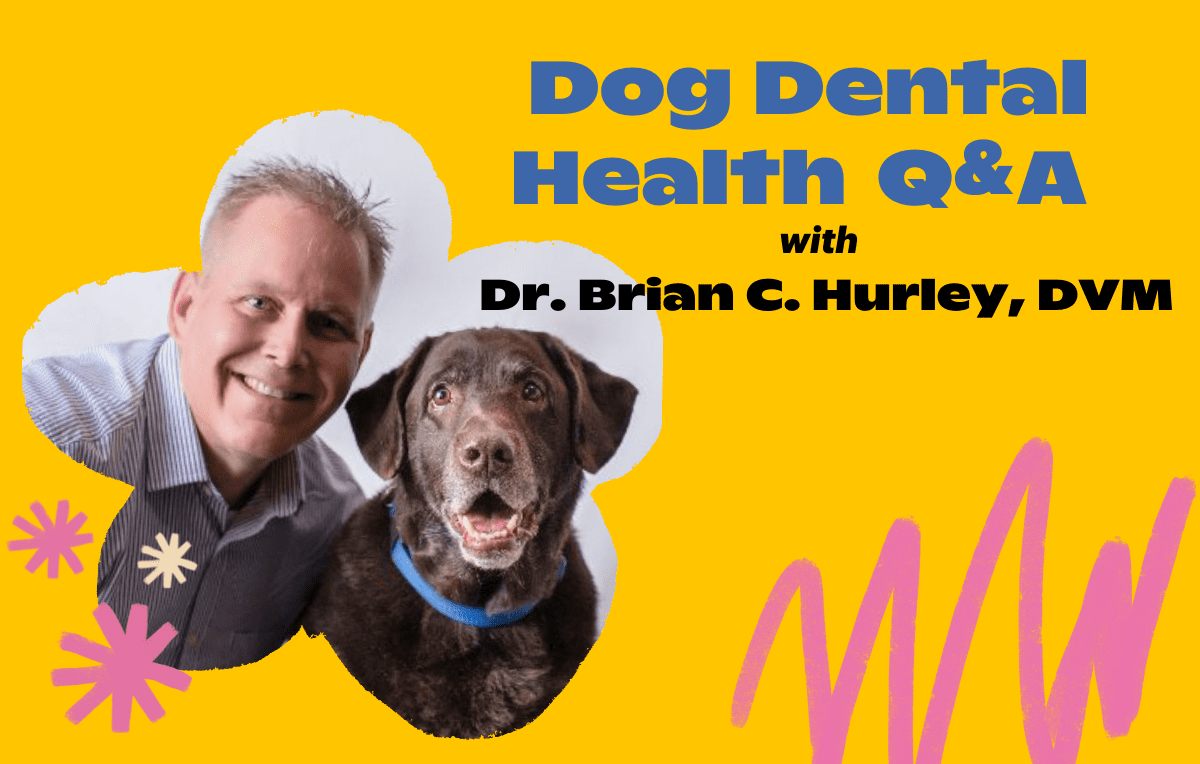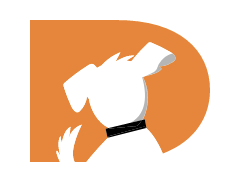2 min read
Ask the Experts: How to Care for Your Dog’s Dental Health
 Lindsay Millican
:
Feb 23, 2023 5:39:42 PM
Lindsay Millican
:
Feb 23, 2023 5:39:42 PM

Have you ever wondered how to keep your pup’s teeth clean, healthy, and free of plaque build-up? Have you been curious about the best ways to prevent cavities and dental diseases in your canine companion? You’re not alone. From puppies to senior dogs, pet parents often have lots of questions about the dental health and care of their four-legged friends.
We recently had the opportunity to learn from veterinarian Dr. Brian C. Hurley, DVM, National Medical Director with AmeriVet Veterinary Partners, and he answered some common questions about canine oral health. Read on for our Q&A session with Dr. Hurley, where we explored topics like professional teeth cleaning, at-home care, and how to spot potential dental problems so you can keep your pup smiling for years to come!
At DOGTV, we like to be transparent: we have affiliate relationships with other companies. We may receive a commission on qualifying purchases made via the links in this article at no extra cost to you.
How do I brush my dog’s teeth?
The earlier you can start the process the better, but remember to progress slowly and steadily.
First, pick a pet-specific toothpaste that your pet accepts (sometimes water may be the only thing acceptable). Next, pick a spot where you will be brushing your pet’s teeth and stay consistent in location. It is best to start by just rubbing your pet’s face for a minute or so. Once your pet has adapted, start lifting the lips and look into the mouth. Rewarding your pet with praise and a treat reinforces positive behavior.
When your pet is ready, start brushing the teeth (using your finger only while holding a toothbrush may be beneficial initially depending on your pet). Do not try to brush all the teeth at first and remember to praise and reward. Over time, you can increase the number of teeth and time spent brushing until you can complete brushing all the teeth. Owners should think about brushing their pet's teeth using the principles we humans use in brushing our own teeth.
What signs indicate dental issues in my dog?
Signs of dental disease include halitosis (bad breath), swollen/red/bleeding gums, increased plaque or tartar buildup, excessive drooling, problems chewing food and keeping in mouth, loose or missing teeth, and/or reduced appetite/inappetence.
How often should I brush my dog’s teeth?
In the ideal situation, just like for us, pets’ teeth should be brushed after every meal. Realistically, pets’ teeth should be brushed a few times per week. Something is better than nothing, so whatever interval your pet will allow is acceptable and will help slow the buildup of tartar.
What if my dog won’t let me brush their teeth?
Owners often relay that brushing their dog's teeth is difficult. Options to consider are the following: water additives for oral health, dental diets, and dental treats, oral gels, and oral flushes.
What happens during an in-office dental cleaning?
Typically, pets have bloodwork before administering anesthesia. Once under anesthesia, the dental cleaning is identical to our cleaning. The pet will undergo full mouth radiographs, oral examination, scaling of teeth including under the gum tissue, polishing, and fluoride treatment. If there is evidence of disease, your veterinarian will contact you to discuss what has been identified and recommend treatment options.
What’s the best way to help a senior pet with dental issues?
The first thing to do is schedule an appointment with your veterinarian and have a thorough examination performed and bloodwork. Your veterinarian will discuss scheduling a dental cleaning and treat underlying dental issues. Following the dental cleaning, your veterinary team will discuss options for at-home care.
Thanks so much to Dr. Hurley for taking the time to answer our questions!
Thanks for joining us on this journey to better understand our furry friend’s dental needs. There is no time like the present to put these tips into action. If you suspect that your dog is experiencing dental issues due to heavy tartar or tooth decay, visit your veterinarian for an in-office assessment and cleaning if needed.
